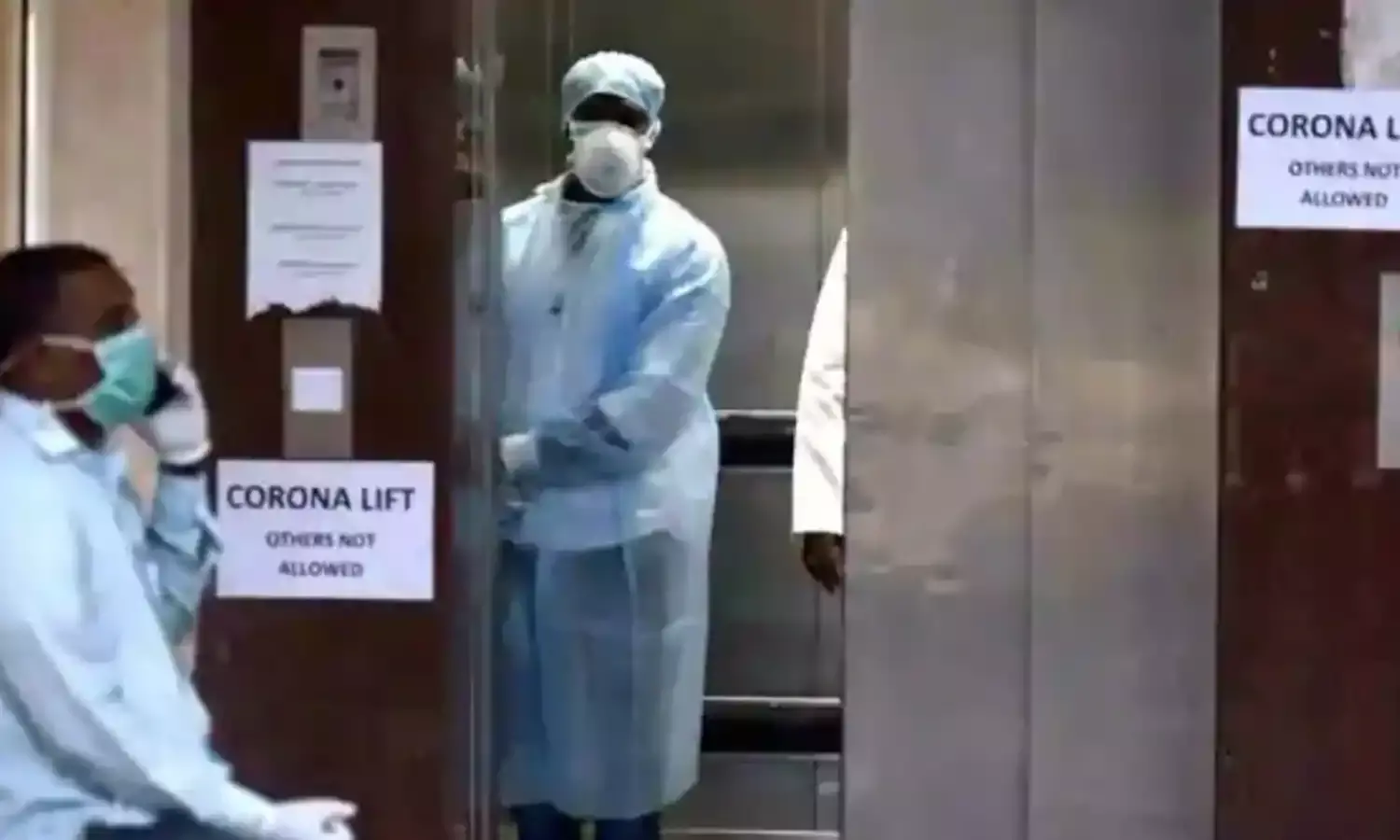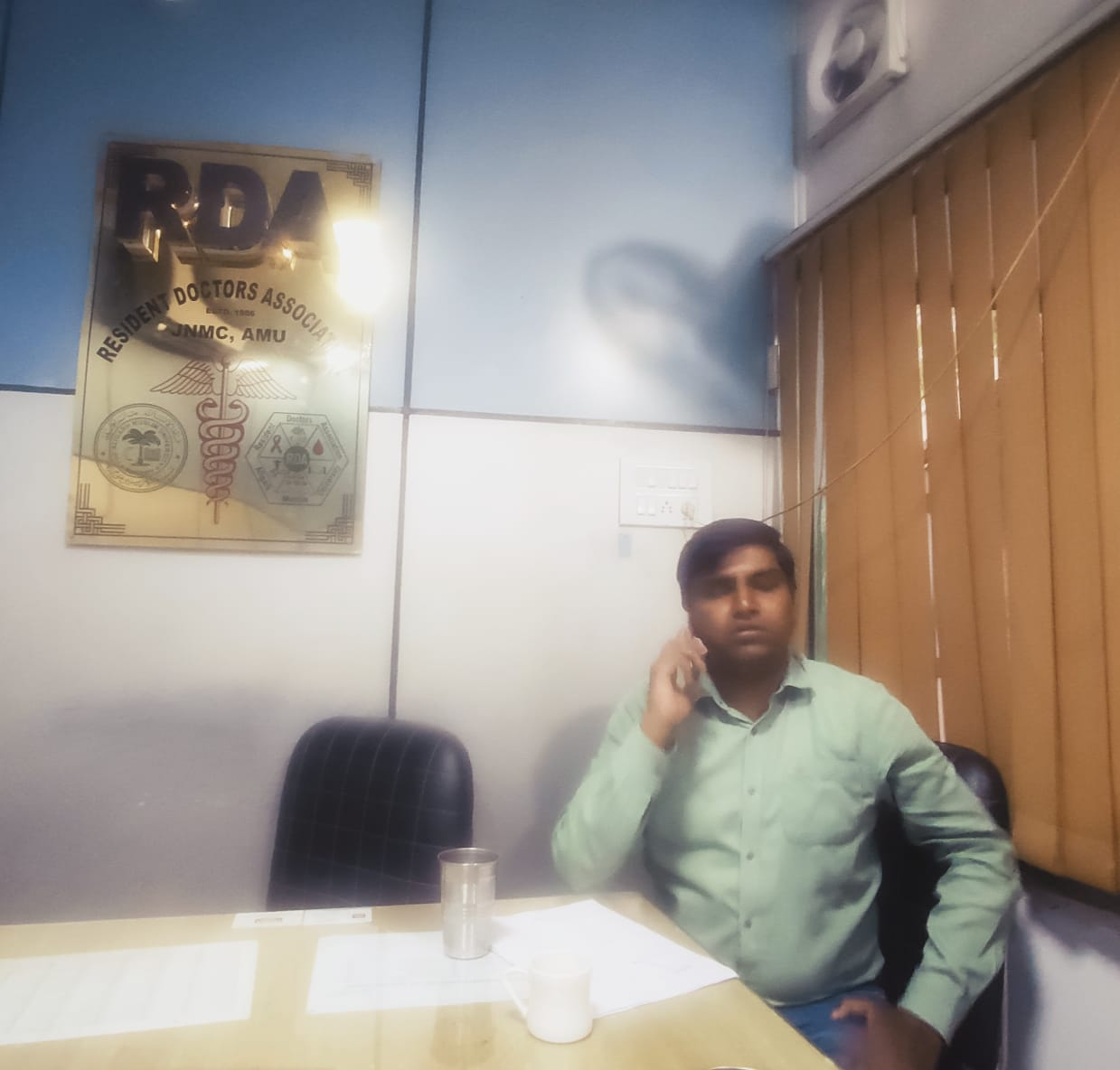Teleconsultation Helps Patients in Lockdown
coronavirus lockdown, patients and doctors in Aligarh are turning towards tele-consultation

ALIGARH: Zafar Ahmad, a 64-year-old man and a resident of Sir Syed Nagar, sits at the edge of his deewaan at exactly 12:30 p.m. He has an appointment with his long-time doctor, as he is a patient of diabetes and has high cholesterol. The doctor does not walk through the front door. He checks up via a WhatsApp video call and prescribes a lighter dose of the medicine Ahmad was already taking. With the advent of the novel coronavirus, the focus of the healthcare infrastructure in Aligarh has been on the treatment and recovery of COVID-19 patients. However, via teleconsultation and online prescriptions, patients of other chronic diseases are being helped by the medical community in this stressful time.
Ahmad had been a cardiac patient for about the last 15 years. When the lockdown was announced, he was very worried, as he needed regular consultations regarding his medicines and checkups. “At my age, it wasn’t very wise to visit hospitals. At the same time, I could not just continue on the same prescription for months. Had it not been for my cardiology doctor who allowed consultation over the phone, I’d have been helpless”, he says.
Ahmad is not the only patient worried about his health. The general (non-COVID) patients are stressed by the restrictions placed on the opening of clinics and OPDs since the outbreak of the novel coronavirus. The health risks of visiting hospitals amid a pandemic are huge, as well as a burden on the already overworked medical force. As such, doctors and medical authorities are turning towards technology to create a win-win situation. Using video conferencing, online texting, and phone calls to consult with patients, medicos around are helping to ensure that no patient goes untreated.
Aligarh was the first city in the state of Uttar Pradesh to utilize telemedicine during the lockdown. According to the State Secretary of Indian Medical Association, Dr Jayant Sharma, "The service of telemedicine was first tested in Aligarh on 27th March. We had talked to the mayor Mohammad Furquan and the Municipal Commissioner Satyaprakash Patel over the proposal." The telemedicine services work via video-calling. The patients interact with doctors and specialists and explain their conditions. The doctors then send photos of their diagnosis and prescription to be used at local pharmacies.
(Jawaharlal Nehru Medical College, Aligarh Muslim University. Credits: Ansab Amir Khan)
Not just the Municipal Corporation of Aligarh but the Aligarh Muslim University (AMU) is also at the forefront of providing relief to ailing patients. Jawaharlal Nehru Medical College (JNMC, AMU) has been providing e-consultation facilities to all the patients who cannot visit the hospital due to the lockdown.
Dr Mohd Kashif, Secretary of the Resident Doctors Association of JNMC, says, "The critical departments of the medical college, such as the Obstetrics & Gynaecology, Tuberculosis and Respiratory, Cardiology and Radiotherapy had been running [telephonic helplines] since the lockdown started. Since the first week of May, the college began using various forms of technology to help treat patients."

(Dr Mohd Kashif, RDA, JNMC, Credits: Ansab Amir)
However, the efforts to help distraught patients come with new challenges. Mohammad Shameem, a professor at the Department of Tuberculosis and Respiratory Diseases, explains, "Even though we try our best, a doctor can only find out a limited amount of information from the patient's symptoms and descriptions. It is much more difficult to treat patients who are completely new to us as opposed to people we have some experience with."
Treating patients is not the only thing they do. "Many of the patients who are seeking consultation are very scared, and understandably so. I ask them to send over their medical history or treatment cards to treat them better, while also trying to calm them down", Prof. Shameem says.
Even though doctors are trying their best to help everyone and be everywhere, the technology they are using isn't available universally. At the dingy small houses in the area of Bhamola, Rekha*, a domestic help, had a fever for two days at the beginning of June. "I did not have a smartphone, so I could not take help from doctors. I was very scared that if I went and had corona, how would my children eat if I was quarantined?'" she wondered. Thankfully, she got better after a couple of days.
(* name changed upon request)
Ansab Amir Khan is a student at Aligarh Muslim University and an aspiring journalist.
Cover Photo: Representational Image



